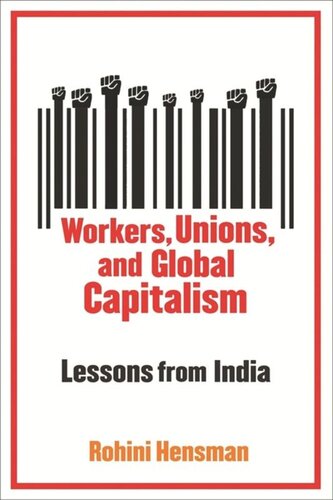

Most ebook files are in PDF format, so you can easily read them using various software such as Foxit Reader or directly on the Google Chrome browser.
Some ebook files are released by publishers in other formats such as .awz, .mobi, .epub, .fb2, etc. You may need to install specific software to read these formats on mobile/PC, such as Calibre.
Please read the tutorial at this link: https://ebookbell.com/faq
We offer FREE conversion to the popular formats you request; however, this may take some time. Therefore, right after payment, please email us, and we will try to provide the service as quickly as possible.
For some exceptional file formats or broken links (if any), please refrain from opening any disputes. Instead, email us first, and we will try to assist within a maximum of 6 hours.
EbookBell Team

4.8
74 reviewsWhile it's easy to blame globalization for shrinking job opportunities, dangerous declines in labor standards, and a host of related discontents, the "flattening" of the world has also created unprecedented opportunities for worker organization. By expanding employment in developing countries, especially for women, globalization has formed a basis for stronger workers' rights, even in remote sites of production.
Using India's labor movement as a model, Rohini Hensman charts the successes and failures, strengths and weaknesses, of the struggle for workers' rights and organization in a rich and varied nation. As Indian products gain wider acceptance in global markets, the disparities in employment conditions and union rights between such regions as the European Union and India's vast informal sector are exposed, raising the issue of globalization's implications for labor.
Hensman's study examines the unique pattern of "employees' unionism," which emerged in Bombay in the 1950s, before considering union responses to recent developments, especially the drive to form a national federation of independent unions. A key issue is how far unions can resist protectionist impulses and press for stronger global standards, along with the mechanisms to enforce them. After thoroughly unpacking this example, Hensman zooms out to trace the parameters of a global labor agenda, calling for a revival of trade unionism, the elimination of informal labor, and reductions in military spending to favor funding for comprehensive welfare and social security systems.